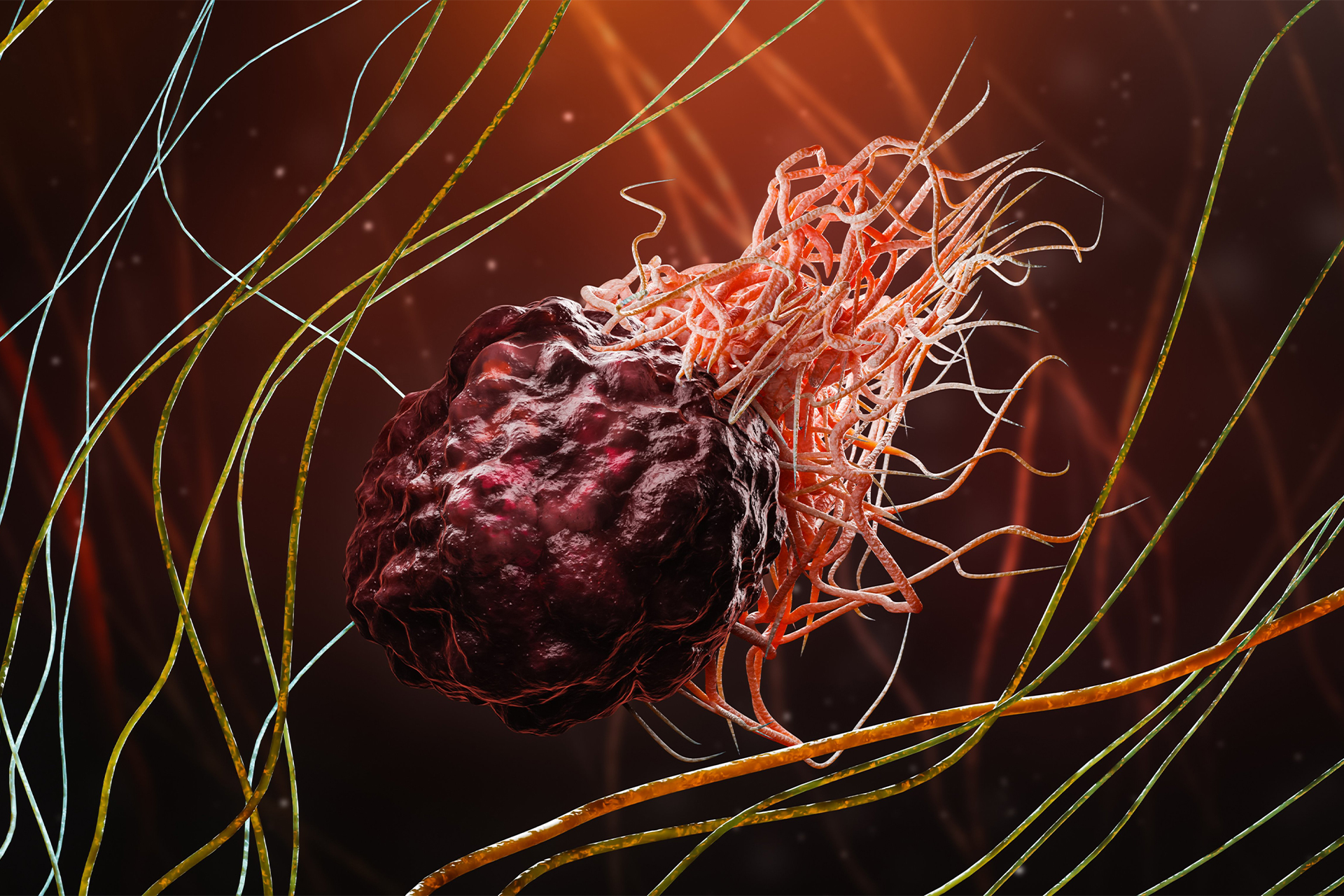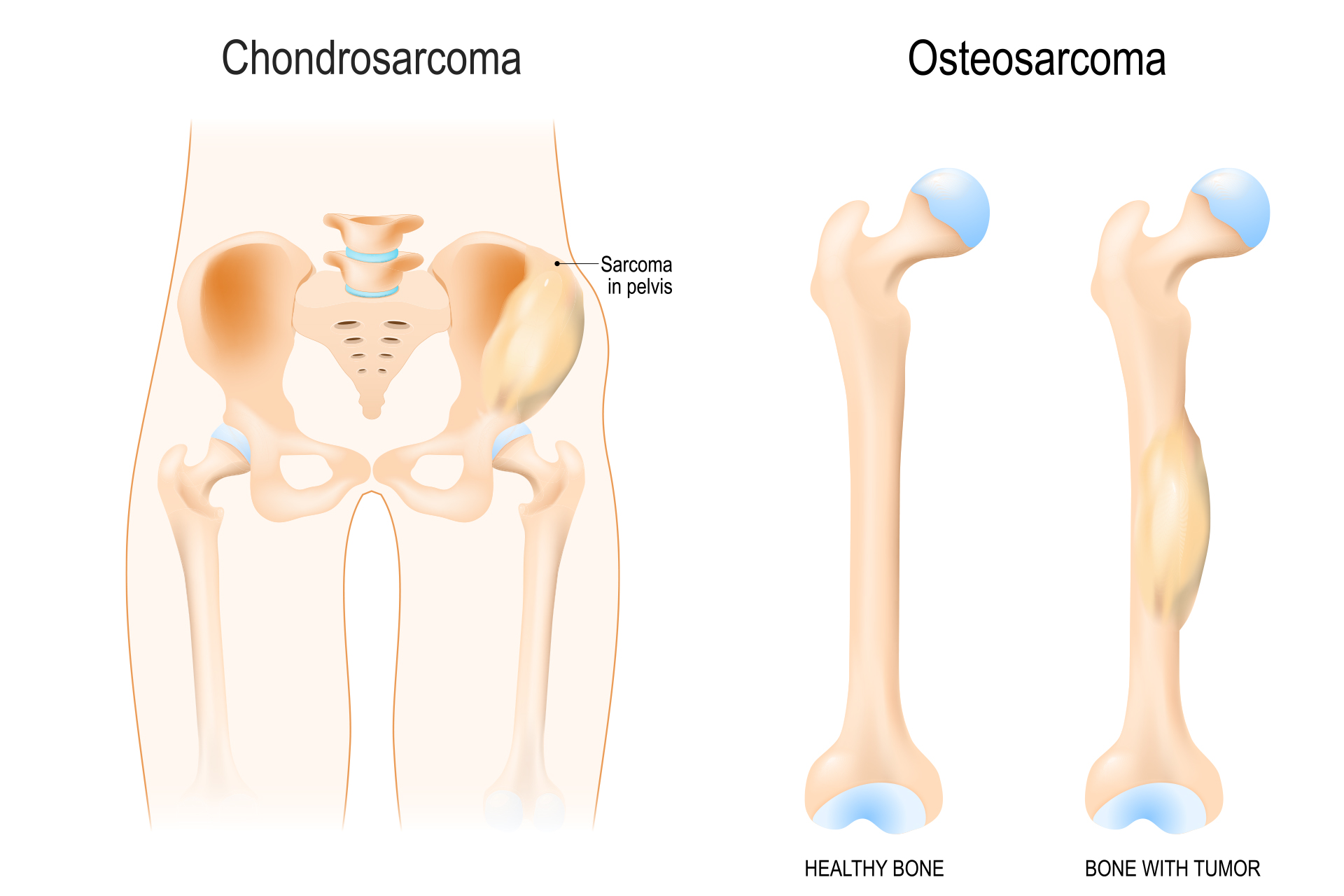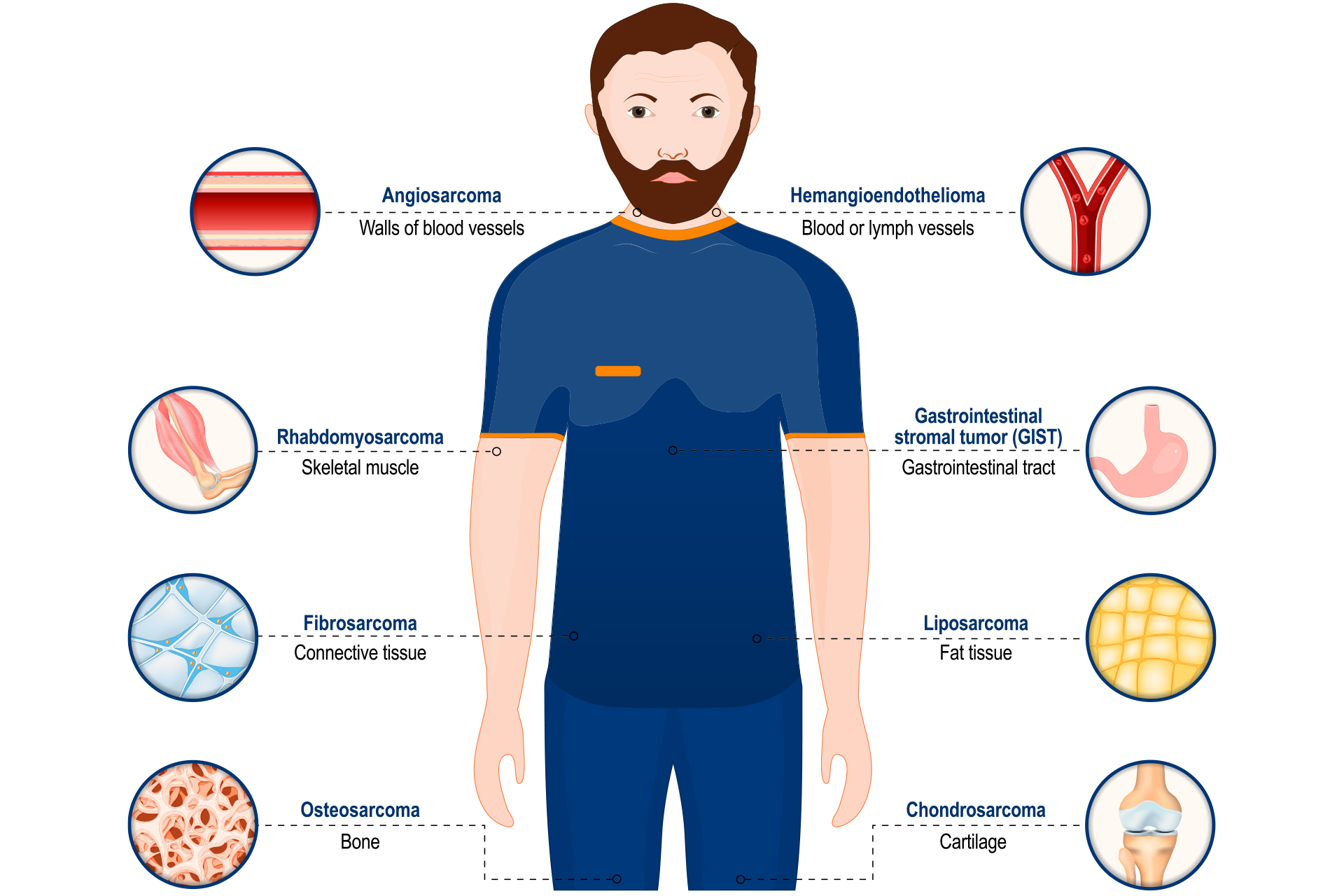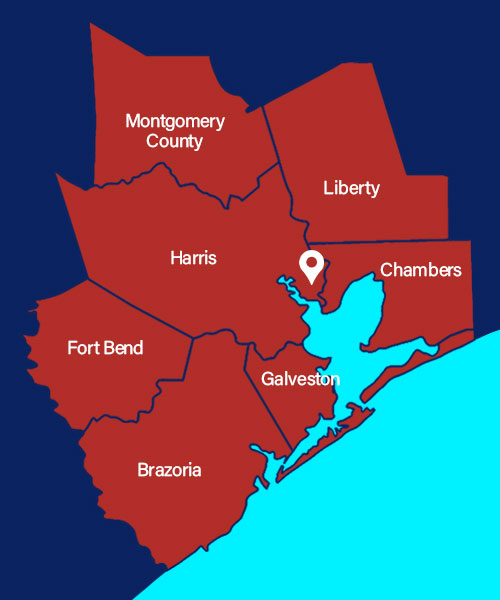A Comprehensive Guide for Sarcoma Awareness Month
July is Sarcoma Cancer Awareness Month, a time dedicated to raising awareness about this often overlooked form of cancer. Despite ongoing research, sarcomas remain not fully understood, and this lack of awareness makes it challenging to promote further research and drug development.
What is Sarcoma?
Sarcoma is a type of cancer that affects soft tissues and bones. It is a general term used to describe a wide range of cancers. Soft tissue sarcoma affects explicitly the tissues that connect, support, and surround other structures in the body, such as muscles, nerves, blood vessels, cartilage, and joint linings. Despite its prevalence, sarcoma represents only 1% of people diagnosed with cancer. In the United States, around 12,000 people are diagnosed with this type of cancer yearly.
There are more than 100 different types of sarcoma, each differing in growth behavior and prognosis. For example, benign and non-aggressive soft-tissue tumors do not grow or spread, while malignant tumors can develop in nearby areas and even distant organs. This differentiation highlights the importance of accurate diagnosis and tailored treatment plans.
Causes of Sarcoma
The exact cause of sarcoma cancer is still unknown, and why some patients develop it while others do not remains a mystery. However, researchers have identified some factors that may increase the likelihood of developing sarcomas. Understanding these factors is crucial for advancing sarcoma research and improving patient outcomes.
Types of Sarcoma
Soft Tissue Tumors
The arms, legs, and trunk (especially the chest and stomach) are the most common areas affected by soft tissue sarcoma. This type of cancer is hazardous due to its rapid and unpredictable nature. It originates in blood vessels, muscle, fat, or fibrous tissues and can spread quickly if left untreated. Early tumor detection can significantly increase the chances of successful recovery.
Kaposi’s sarcoma is a highly aggressive form of soft tissue sarcoma that starts in the blood and lymph vessel linings. Tumors or lesions associated with this type of cancer typically present as painless purple spots on the feet, legs, or face. These lesions may also appear in the genital area, mouth, or lymph nodes and should be taken seriously.
Bone Tumors
Bone sarcomas start in the bone or cartilage and can potentially spread to other parts of the body. Unlike soft tissue sarcomas, bone sarcomas require different treatment approaches. Chondrosarcoma, osteosarcoma, and Ewing’s sarcoma are the most common types of bone sarcomas. Chondrosarcoma and osteosarcoma are more common in children and teenagers, while Ewing’s sarcoma is more common in adults over 50.
Symptoms and Detection
Early detection of sarcomas is crucial, as they are rare and can manifest in various forms, making them susceptible to misdiagnosis. The tumor usually starts with a painless lump that becomes painful as it grows. Further symptoms include tightness in the muscle or tissue. Being proactive and aware of these signs can contribute to early detection and better patient outcomes.
Bone sarcoma causes intense pain in the affected bone and can provoke a bone fracture if the tumor swells significantly. Sarcomas in internal organs such as the stomach or liver can be harder to detect. If someone’s swelling is larger than 5 cm or grows quickly, it needs to be checked by a doctor as soon as possible.
Treatment Options
Sarcoma treatment depends on the cancer’s stage, size, and location. Surgery is often the preferred treatment because it removes the tumor directly and prevents its expansion. However, surgery is not always the solution. Some types of bone sarcoma require chemotherapy, radiation, or other targeted therapies. A team of specialists makes the choice of treatment, considering the specific characteristics of the sarcoma and the patient’s overall health.
The Significance of Sarcoma Cancer Awareness Month
Sarcoma Cancer Awareness Month is an essential time for us to come together and highlight the need for increased research and funding. Organizations like the Sarcoma Alliance for Research Through Collaboration (SARC) are leading the way in promoting sarcoma research. By supporting these efforts, we can all play a part in improving diagnosis, treatment, and outcomes for sarcoma patients. Our collective support can make a significant difference.
How Can You Help?
With our collective efforts, we can bring hope and optimism to the fight against sarcoma. As we observe Sarcoma Cancer Awareness Month, let’s commit to spreading knowledge, supporting those affected, and contributing to the ongoing efforts in sarcoma research. Together, we can make a difference.
Call Signature 24/7 at 1 (800) 277-8291 for excellence in skilled and compassionate home health care.

Your Complete Home Health Care Solution!
ALWAYS ON CALL
| Monday – Sunday | 24 / 7 |
1 (800) 277-8291 (option 1)
COUNTIES SERVED
OUR VALUES
TESTIMONIALS

I love all of my home health people.

All Signature staff as well as therapy were very helpful.

Their services have always been great.

I really love my physical therapist. Gary has helped me so much.

This has been one of the best agencies. Very caring nurses.

I’ve had a really good physical therapist and really nice nurses.

I have had excellent care & would recommended them to anyone.

Gary Dixon is the very best physical therapist in Baytown and Houston Area.




